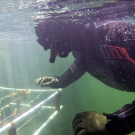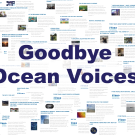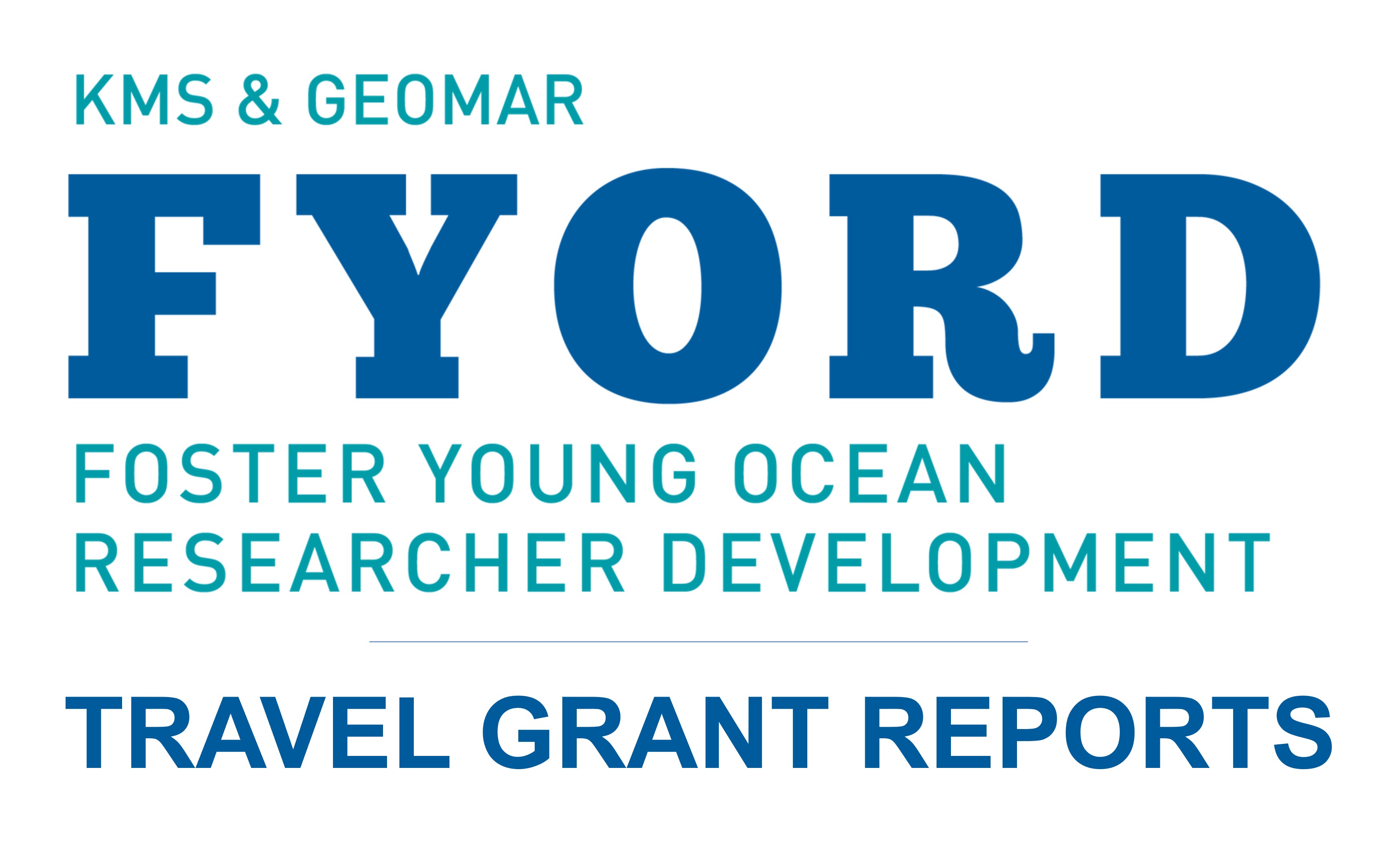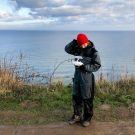On Åland, the seasons change quickly and vividly. In summer, the nights never really grow dark as the sun hovers just below the horizon. Only a few months later, autumn creeps in and softly cloaks the island in darkness again. The rhythm of the seasons is mirrored by the biological station itself; researchers, professors, and […]
Goodbye Ocean Voices!
In 2021, a group of doctoral researchers at GEOMAR was considering the idea of creating a blog for young marine scientists to share their research and experiences with a wider audience. I joined them in early 2022, when it had progressed from an idea to a project and a lot of decisions had to be […]
FYORD Travel Grant Reports: February 2026
The Annual Conference of the Society for Experimental Biology, Antwerp I am a marine physiologist using sea urchin larvae as a model to investigate energy regulation processes in marine invertebrates. I work at the Zoological Institute, Kiel University, as a postdoctoral research fellow funded by KiTE program. This summer, I was supported by a FYORD […]
Winter is coming – Fieldwork edition (Or: something for your not-to-do list)
As a marine scientist working in the Baltic Sea area, summers are usually reserved for fieldwork: excursions to cliffs and beaches, research cruises with FK Littorina, and diving campaigns. Winters, on the other hand, are meant for processing and analysing the huge amounts of data collected during summer and for preparing the next field season. […]
Farewell to Santorini and the Aegean Sea: The FS METEOR docks in Limassol
We have arrived! Today, on 10 January 2026, the FS METEOR entered the port of Limassol in Cyprus. The city welcomes us with windy but sunny weather. After two days of transit from our work area to the east, we are glad to feel solid ground under our feet again, because at the end of […]
Abschied von der Santorini und der Ägäis: Die FS METEOR legt in Limassol an
Wir sind angekommen! Heute, am 10. Januar 2026 ist die FS METEOR in den Hafen von Limassol in Zypern eingelaufen. Die Stadt begrüßt uns mit windigen, aber sonnigem Wetter. Nach zwei Tagen Transit von unserem Arbeitsgebiet gen Osten sind wir froh, wieder festen Boden unter den Füßen zu spüren, denn zum Ende unserer Fahrt hat […]
Weather forecasters on the high seas: the work of ship meteorologists on the FS METEOR
What happens on a research vessel when the weather is bad? We have been quite lucky with the weather and sea conditions so far. The average day has mostly consisted of blue skies, hardly any swell or wind, and the clouds that have appeared in the sky from time to time have looked more like […]
Wetterfrösche auf hoher See: Die Arbeit der Schiffsmeteorologen auf der FS METEOR
Was passiert auf einem Forschungsschiff, wenn das Wetter nicht mitspielt? Wir haben bisher ziemliches Glück gehabt mit den Wetter- und Seebedingungen. Der durchschnittliche Tag enthielt meist blauen Himmel, kaum Seegang und Wind, und die Wolken, die zwischenzeitlich am Himmel zu sehen waren, sahen eher nach Dekoration für das szenische Gesamtbild als nach Vorboten von Niederschlag […]
Autonomous over the seabed: AUVs Kalle and Anton on a mission
It’s the final sprint! The last few days of the M215 (MMC – 3) were once again used to the full. The measuring instruments that recorded seismic activity and ocean floor magnetotellurics during the expedition are being recovered and the data secured, the MOMO video sled is going on dives and our AUVs are also […]
Autonom am Meeresboden: Die AUVs Kalle und Anton auf Mission
Es geht in den Endspurt! Die letzten Tage der M215 (MMC – 3) wurden noch einmal voll ausgeschöpft. Die Messinstrumente, die während der Ausfahrt seismische Aktivität und Ozeanboden-Magnetotellurik gemessen haben, werden geborgen und die Daten gesichert, der Videoschlitten MOMO geht auf Tauchgänge und auch unsere AUVs kommen mehrfach zum Einsatz. Das AUV-Team besteht auf der […]



